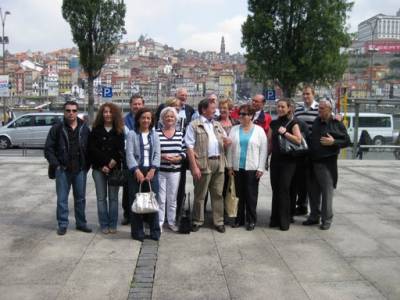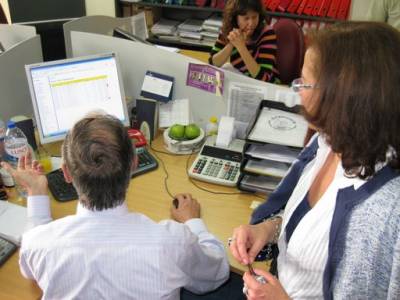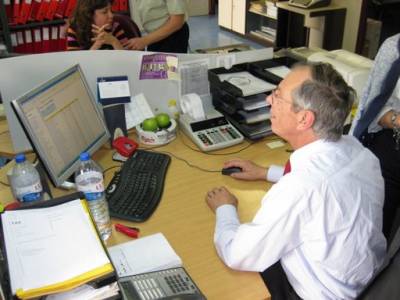Customs legislation
What is ship supply under European customs legislation?
European ship supply is greatly affected by European customs legislation. This is because of the specialized nature of the ship supply operations. In the EU, formally, ship supplies are ship stores, supplies and spare parts delivered on board of vessels that are exempted from VAT under Article 148 of Council Directive 2006/112/EC and/or excise duties under Article 14(2) of Directive 2008/118/EC.
Blog entry: "Why ship supply guidance is no longer enough"
The integration of customs legislation into a single community customs code and the provisions regulating value-added tax and excise duties on petroleum, alcoholic beverages and tobacco products, combined with the work of the European Ship Suppliers Organization (OCEAN), have highlighted the need for harmonised ship supplying procedures in all EU Member States for the surveillance of products delivered to ships.
They cover for instance foodstuffs as well as other items that are consumed or sold on board or used by crew, as well as passengers, items for incorporation as part of or accessories in vessels and for the operation of the engines, machines and other equipment on-board.
The following examples, which are not exhaustive, illustrate the use of ship supplies:
- Spare and repair parts intended for incorporation in ships for equipping, repairing and the maintenance of the vessel (for example critical safety and lifesaving equipment, tarpaulins, ropes and cables, paint, varnishes and chemicals, etc.),
- Motor fuels, lubricants, and gas which are necessary for the operation of machines and apparatus used on board of the ship, ? Foodstuff and beverages used for consumption on board of the ship,
- Durable goods and equipment (delivery of bed linen, musical instruments and TV sets for cabins),
- Products for personal use, such as toiletries etc. for personal use of crew and passengers,
- Textiles and Synthetic Products, such as synthetic products for cabins, including carpets, curtains as well as flags, ? Electro-technical stores, including specialist navigational equipment,
- Machine, Cabin, Deck, and Engine Stores (technical equipment and spares which may be required at the deck department, the engine department or the steward’s department),
- Excise goods (alcoholic beverages, tobacco products) sold on board.
Consumption, use, incorporation, and operation of ship supplies takes place on board.
Goods delivered onboard a vessel are being used and consumed exclusively within that vessel during the entire voyage of that vessel. These goods are not destined to be imported into another country nor transported by other means of transport through it. In other words, once onboard, they never leave the vessel again.
The relevance of the export procedure for ship supply has been pointed out many times, and its unique status in terms of special trade conditions and legal interpretation. This is because in the case of ship supply, the old saying "one country's export is another country's import" does not apply here. Goods designated as ship supply should be considered as having left the EU once they have been loaded onboard of a vessel which is bound for another country. The vessel should be considered to be similar to a “third country” regardless its origin or destination.
- Goods designated as ship supply have left the EU once they have been loaded onboard of a vessel which is bound for another country.
- The vessel is considered to be similar to a “third country” regardless its origin or destination.
- Ship Supply is considered to be similar to export.
READ OUR BLOG ENTRY: "When have ship supplies left the EU"? A commentary from the Chair of OCEAN Working Group on Customs. In the debate on the right customs guidance for EU ship suppliers, the Chairman of the OCEAN Working Group Customs & Taxation weighs in to ask a fundamental question: When have ship supplies left the EU?
Ship supply is a world-wide international business, and it is normal for foreign ships to require technical stores and food stuffs from their homeland to be delivered under the transit customs procedure. Frequently, goods from one country are delivered by ship suppliers from a second country to ships in a third country. If necessary, such goods can be temporarily stored in a customs / bonded warehouse for delivery at the right time to ship. Customs and other authorities should control transit traffic only to the extent of ensuring such traffic is not used for purposes other than intended. However, the non-interference with transit and transit traffic deliveries on sea going ships is a basic condition for smooth ship supplying. So, today, transit traffic is the basic condition for international trade in general and especially for ship supplying. It is one of the most common form of trade for ship supply. This is because a ship supplier removes goods no longer used on board, faulty goods for repair or spare parts for storage. For instance, inflatable life-rafts on vessels have to be regularly inspected. Ship suppliers therefore have to land them, bring them back to their company for inspection and deliver them back on board during the short period that the vessel is in port. This can also take the form of an import operation.
- Study on the customs treatment of ship supply in the EU (2015 edition)
- Power Point Presentation: The European Commission and EU Member States visit Ship Supply companies in Genoa, Italy (orgnised by ANPAN & OCEAN)



